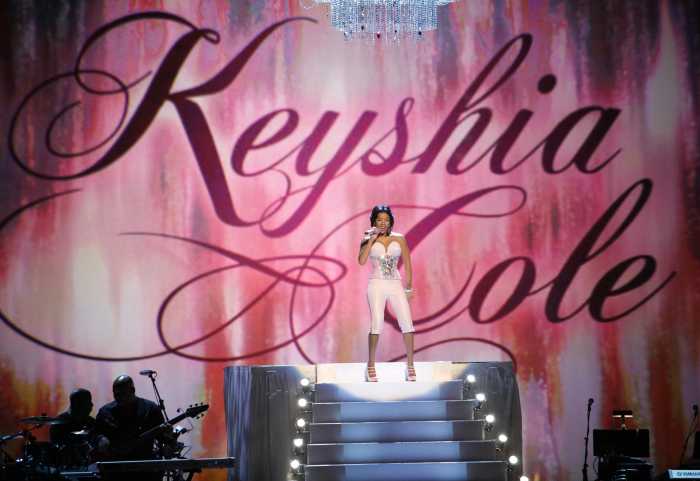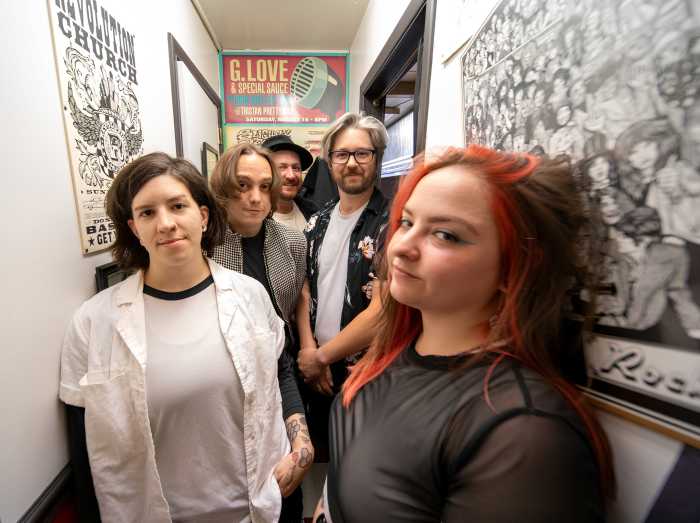The month of March has brought another roundup of music by LGBTQ artists, from producer Heavee to bands Guerilla Toss and Hurray for the Riff Raff.
Heavee | “Audio Attack” | Hyperdub | March 25
The Chicago-based footwork scene received more attention in the UK —via labels like Hyperdub and Planet Mu — than anywhere in the U.S. outside its home city. Influenced by house music, hip-hop and drum’n’bass, footwork uses complex polyrhythms. (The music is easier to understand after watching videos of dancers performing to it.) The genre has experienced growing pains; DJ Rashad, whose 2013 album “Double Cup” marked one of its high points, died soon after its release, while its most critically acclaimed producer Jlin is no longer really working within it.
Queer footwork producer Heavee’s new ep “Audio Attack” was conceived as an imaginary video game soundtrack. He uses woozy, ‘90s-inflected synth patches that could’ve come from a Nintendo score. But these songs and their structure tell a story and set a mood, even without lyrics. Rather than dominating the mix, Heavee’s percussion underpins other sounds. “Floor Burn” samples a man saying “I think it’s time to make the floor burn,” while “Watch Yo’ Self (Feeling Myself)” does the same with the phrase “feeling myself,” but Heavee isolates individual words and puts reverb and delay on them to make them function as a percussion instrument. (The album grapples with pop music as a space where lyrics are becoming much less important than the voice’s sonic potential.) Several songs feature tense but melodic passages influenced by techno. However, Heavee takes familiar sounds from other genres and puts them in a new context. Nintendo soundtracks didn’t deploy drums that sound like they’re playing in several time signatures at once.
Hurray for the Riff Raff | “Life on Earth” | Nonesuch
“Life on Earth” leaps from Hurray for the Riff Raff’s early folk-influenced music to a polished sound that often looks back at ‘80s pop. As their major label debut, it delivers the slick production one might expect from the move. But its desire to reach a larger audience is politically purposeful. The group’s queer singer/songwriter Alynda Segarra, whose background is Puerto Rican, calls the album “nature punk.” Hurray for the Riff Raff also has a trans member, Yosi Perlstein, according to Newsweek.
“Life on Earth” is an ambitious attempt to reckon both with climate change, as its refrain of “life on Earth is long” might not be a safe bet, and being a Latinx person living in the U.S.
The eclecticism of “Life on Earth” may be the norm in 2022 pop, but Hurray for the Riff Raff’s ability to apply the same passion to jazzy ballads like the title track and “Rosemary Tears” and backing tracks that could be hits for the Weeknd is still impressive. So is their ability to write lyrics that juxtapose the personal and political, always open to wider interpretation. While somewhat elusive, the chorus of “Wolves” — which says “run, babe, you know how to run” — might fit into a generic love song, but here it applies a Springsteen trope to refugees. “Rhododendron” finds transcendence in plant life. Seggara raps about the real-life experiences of a victim of ICE detention in “Precious Cargo.” The album works on a big canvas while capturing a perilous instability.
Guerilla Toss | “Famously Alive” | Sub Pop | March 25
Speaking of instability, Guerilla Toss bring back memories of that early ‘80s moment when rock bands saw the virtues of mixing noise with elements of dance music and pop. The 2000s post-punk revival drew heavy inspiration from that period, but Guerilla Toss do so without copying any specific bands. They’ve honed their chaos down to a fine craft, exemplified by the digital scuzz that begins and runs through their songs. The videos for “Cannibal Capital” and “Famously Alive” pursue a particular look, part ‘80s VHS and part early YouTube. But instead of offering easy nostalgia, they detour into nightmarish directions. Even at the band’s poppiest, such as “Mermaid Airplane,” Guerilla Toss deconstruct the hooks they work with. And they’re far more likely to destroy a groove than settle into it.
Singer Kassie Carlson, who rejects labels but is open about having relationships with men and women, wrote the album while coping with the anxiety and isolation of the pandemic. She says “I had to figure out a way to manage my anxiety. The pandemic was hard, but it helped me get comfortable inside my own body. My peace of mind came out of being thrust into the deepest s**t.” “Famously Alive” dances between panic and joy, with dance beats subverted by fuzz-drenched synthesizers and guitar riffs. Carlson can sing in a very clean, quiet voice when she wants to, but following the words for every song requires concentration. “Famously Alive” revels in its contradictions, using slick production to enhance Guerilla Toss’ abrasiveness. It’s a dizzying listen, flirting with unpleasantness more than it rises above panic.
This story first appeared on our sister site, Gay City News.

































